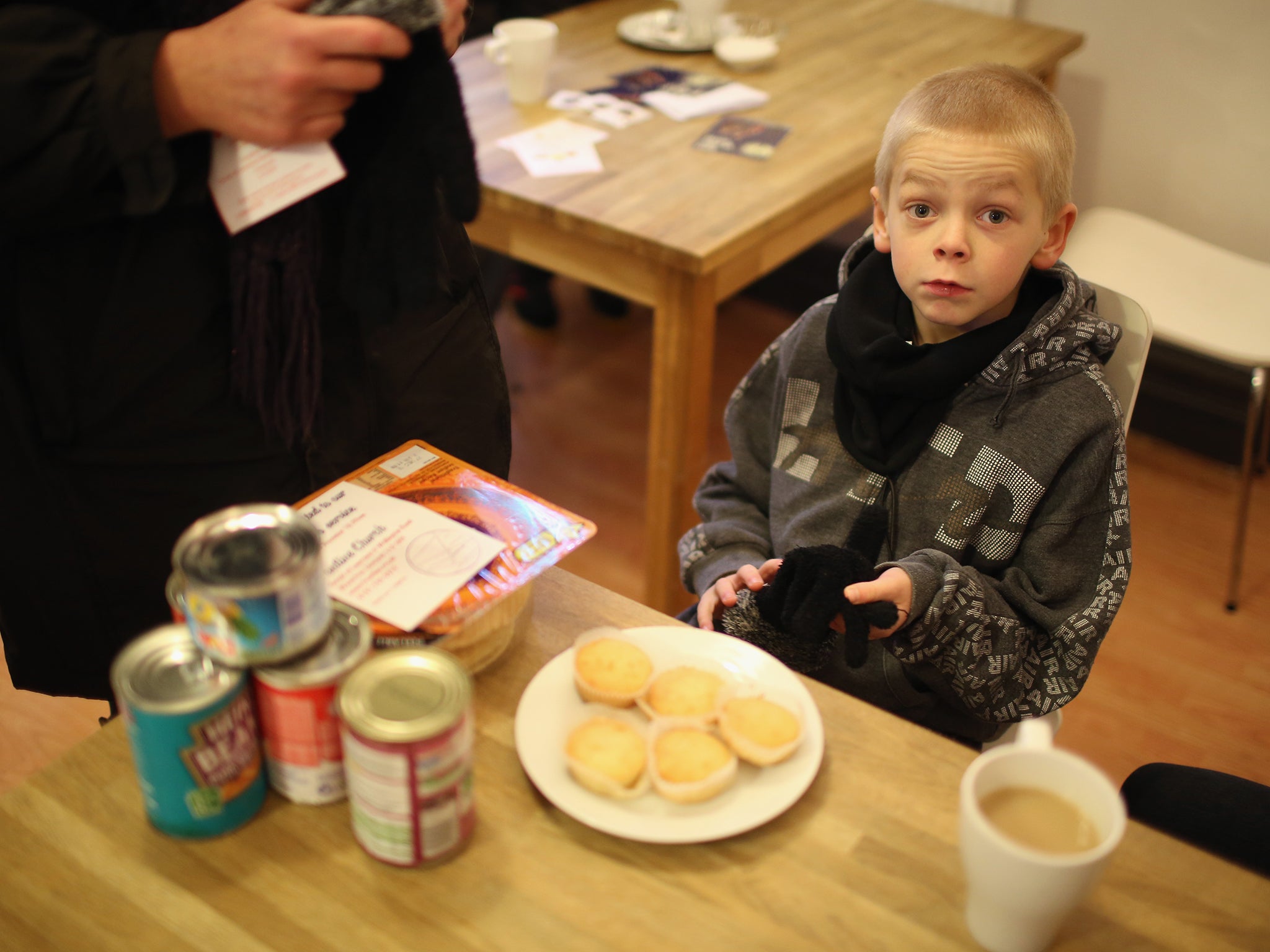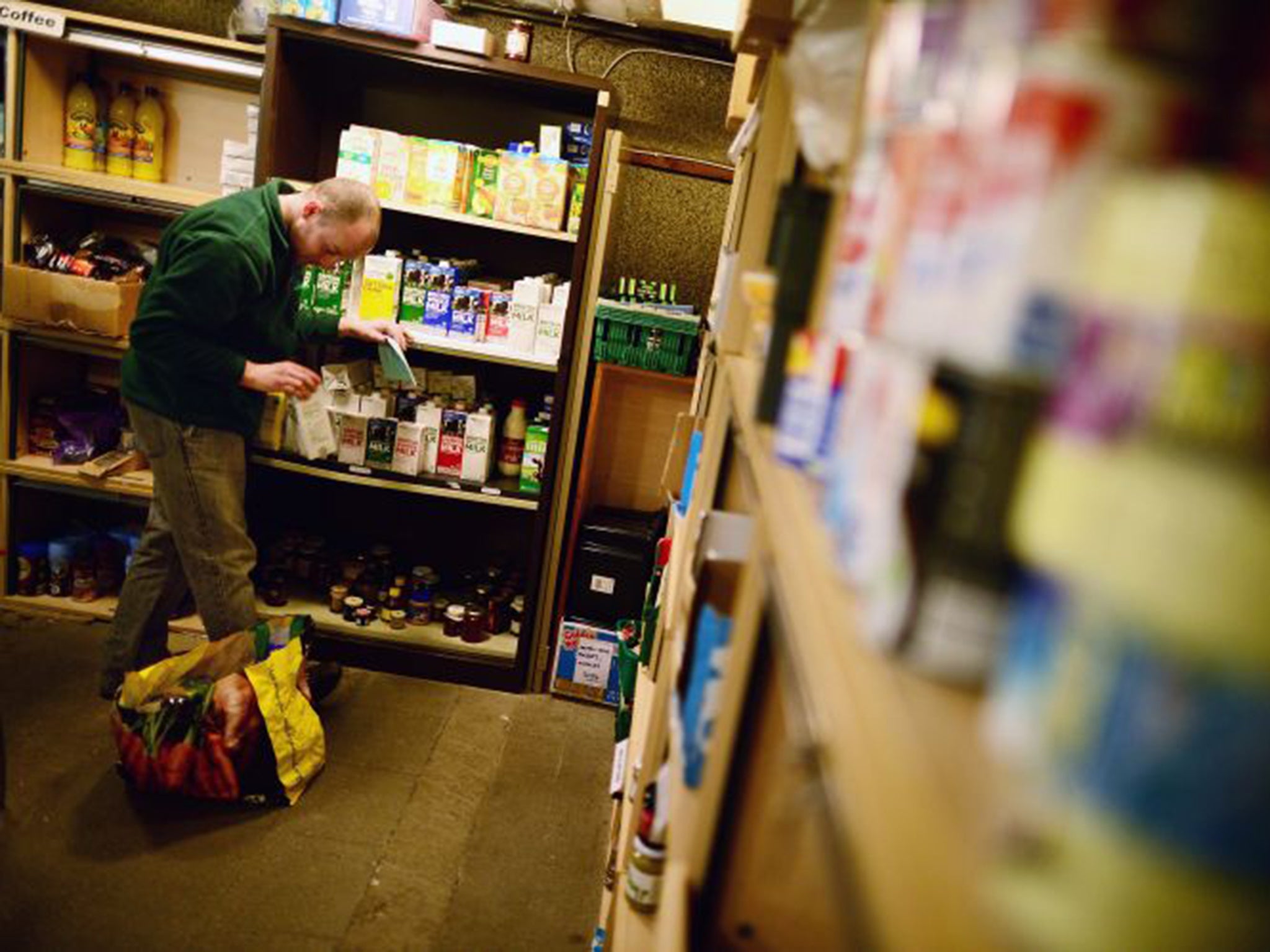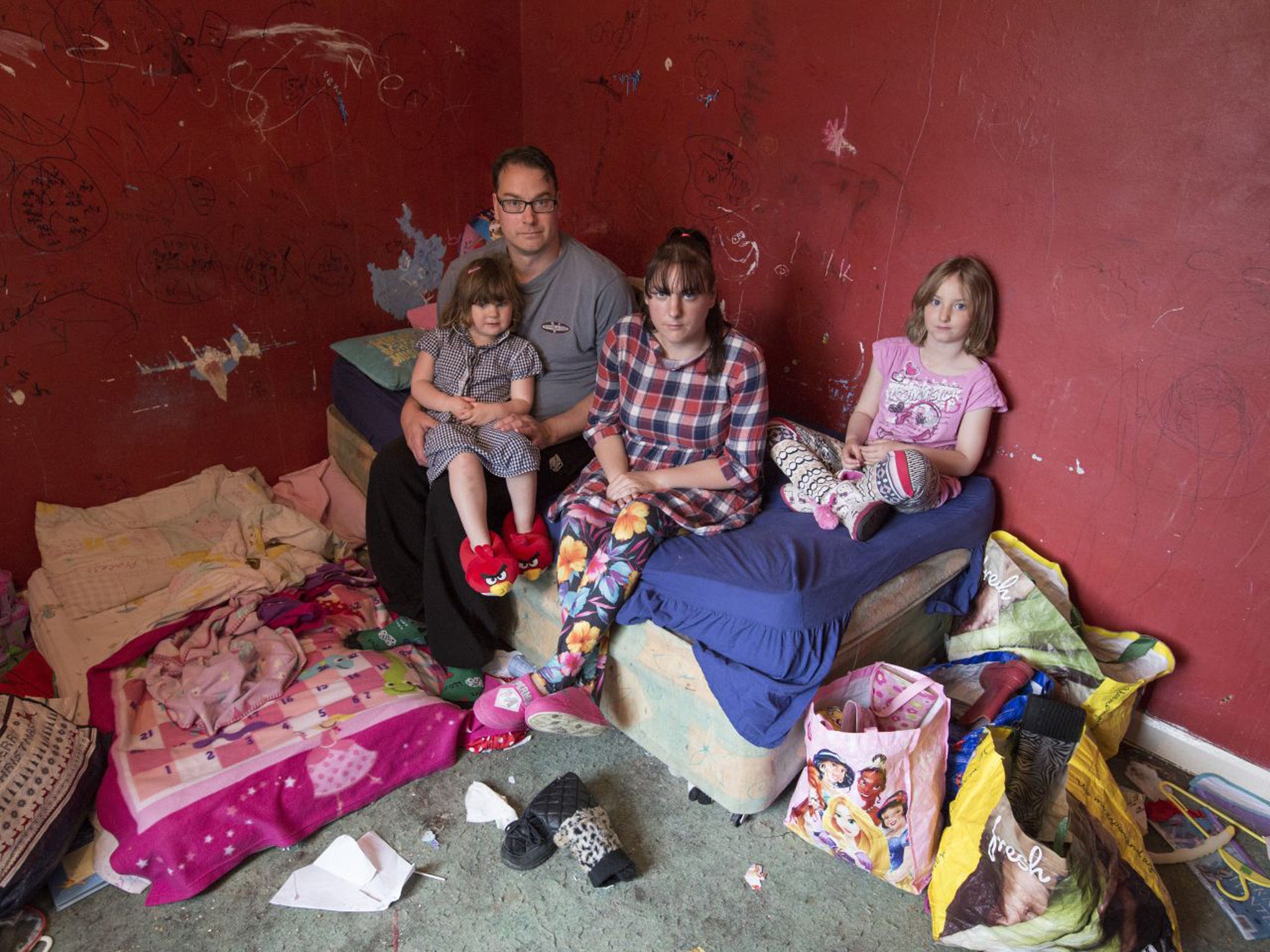Food charities braced for a busy summer with more children than ever set to go hungry
The summer holidays are often the toughest time for families on the breadline

Your support helps us to tell the story
From reproductive rights to climate change to Big Tech, The Independent is on the ground when the story is developing. Whether it's investigating the financials of Elon Musk's pro-Trump PAC or producing our latest documentary, 'The A Word', which shines a light on the American women fighting for reproductive rights, we know how important it is to parse out the facts from the messaging.
At such a critical moment in US history, we need reporters on the ground. Your donation allows us to keep sending journalists to speak to both sides of the story.
The Independent is trusted by Americans across the entire political spectrum. And unlike many other quality news outlets, we choose not to lock Americans out of our reporting and analysis with paywalls. We believe quality journalism should be available to everyone, paid for by those who can afford it.
Your support makes all the difference.Food charities across Britain are bracing themselves for what could be their busiest summer yet, as rising childcare costs, low wages and the fallout from the Government’s welfare reforms mean more children than ever risk going hungry.
Last summer, the Trussell Trust had 20,000 more referrals to its food banks, compared with the previous three months of that year. The economic recovery is not making the problem go away. The charity fed 585,229 people in the six months to March 2015, up 7 per cent from the same period a year earlier.
The summer holidays are often the toughest time for families on the breadline because of the need to find money for meals that are no longer provided by school, as well as for childcare. Now low pay, stringent benefit sanctions, cuts and delays to benefits, and soaring childcare costs, are contributing to rising numbers seeking help.
David McAuley, chief executive of the Trussell Trust, said: “Holiday hunger is a growing cause for concern and an issue we are taking seriously. Last summer saw a big spike in demand as food banks had to feed 20,000 more people than the previous quarter.
“We expect an increase in need, particularly towards the end of summer as this is often when budgets are particularly stretched. Low income and benefit delays remain major causes of clients referred for emergency food banks.”
The charity is considering expanding its holiday lunch clubs across its network to help to meet the demand over the summer.
Frank Field MP, who co-chaired the all-party parliamentary inquiry into hunger and food poverty, said: “We could by the next school holiday cut these figures in half if the Department for Work and Pensions were to pull its finger out. The idea that families are able to wait weeks and weeks for their first benefit payment when they’re down on their luck is lunacy.
“Following our cross-party inquiry there is a weight of evidence to show why nobody could seriously justify making people wait so long during times of need. The Government must take a long, hard look at the evidence we’ve submitted and act now to prevent such serious hardship occurring down the line.”
Later this month, official figures are expected to show that child poverty is increasing for the first time since Tony Blair’s 1999 commitment to end it in a generation. The expected rise is based on data from 2013/14, which coincides with the moment when the majority of welfare reforms, such as the bedroom tax and benefit sanctions, kicked in.
Alison Garnham, chief executive of Child Poverty Action Group said: “More than two million kids are in families who are having to cut back on food or heating because of the decision not to increase children’s benefits in line with the cost of living. Ordinary parents, many of them working, are struggling to put enough food on the table. Holiday lunch clubs would help, but low-income parents also need a long-term solution. Independent projections suggest we are about to see the start of the biggest increase in child poverty for a generation.
“The Government must confront and tackle the real drivers of poverty which are low wages, soaring rents and childcare costs and real-terms cuts in children’s benefits.”
Magic Breakfast, a charity giving free healthy breakfasts to primary schools where more than half of pupils qualify for free school meals, has 300 schools on its waiting list and has had to expand to cover the holidays to meet demand.

Rachael Anderson, the charity’s school partnerships manager, said: “The summer holiday problem is not only about the children eligible for free school meals but also (possibly more so) about the children who are what we call ‘on the cusp’. They are just above the threshold for benefits, and are usually minimum-wage or zero-hours contract workers.
“I spoke to a school in the north of England last week where parents were saying they are forced to resign from their low-paid jobs at the end of the summer term, and then look for work again in September, as they simply can’t afford the childcare. How do these families feed their children when there’s no income?”
Rising childcare costs are a problem for families trying to survive the summer holiday. Stephen Dunmore, chief executive at the Family and Childcare Trust, said: “With holiday childcare costs rising by 23 per cent in England in the five years until 2014, we think it is likely that costs will go up again this year. We are equally concerned about the availability of holiday childcare. New research by the Family and Childcare Trust shows that 39 local authorities across England and Wales have reported a shortage of holiday childcare.”
The picture is likely to get worse next summer. Once the benefit cap is reduced from £26,00 to £23,000, larger families – particularly those living in expensive areas – will struggle to make ends meet.
A DWP spokesman said: “We continue to spend around £94bn a year on working age benefits, ensuring a strong safety net is in place to support people who are unemployed or on low incomes. Universal credit is already transforming lives with claimants moving into work faster and earning more.”
Case Study
Vicky Vincent, 27, lives with her partner, John, 37, and their daughters Mariah, seven, and Calleigh, three, in Norwich.
“My partner lost his job suddenly last year and we had to wait eight weeks before we got Jobseeker’s Allowance. With bills mounting up like rent, gas, electric and TV licence, there was hardly any money left for food. I was having to choose between food and having washing liquid to keep the girls’ uniforms clean. My health visitor suggested getting a food voucher and it was a big help. It was a very scary time. We were worried about what bills might come through the door, and if we would be evicted because we weren’t paying rent. I’m diabetic so I couldn’t go without food, but sometimes my partner did.

“In term time we get free school meals. That means during the week we normally only need to feed my oldest in the evening and at breakfast, but in the summer holidays it’s harder. My partner eventually got a part-time job as a cleaner, but I think we would struggle in the school holidays without the holiday meals help we get from [churches’ kitchens scheme] MakeLunch.”
Join our commenting forum
Join thought-provoking conversations, follow other Independent readers and see their replies
Comments